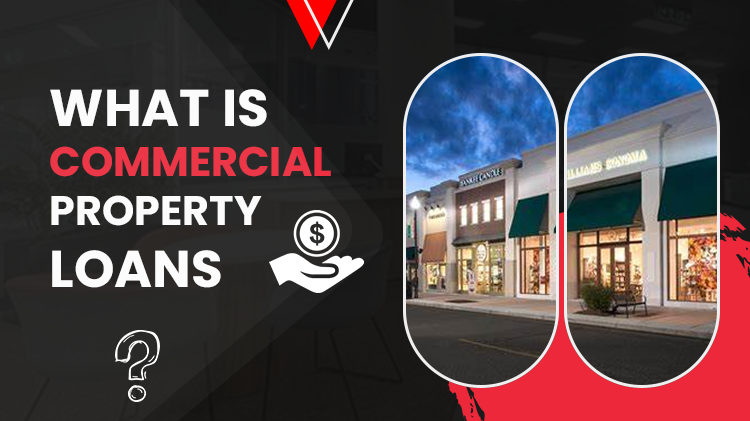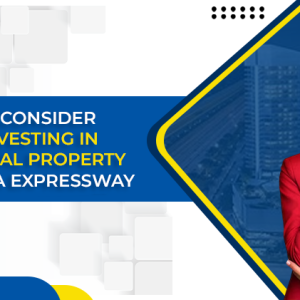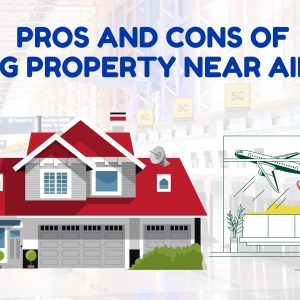Table of Contents
Commercial real estate loans are crucial for providing businesses with the capital they require to purchase or leverage their commercial properties. Whether it’s for refinancing an industrial warehouse, expanding retail space, or purchasing an office building, these loans offer a tailored financing solution. This blog will cover all aspects of commercial property loans, including their description, types, eligibility requirements, the application process, and crucial factors.
What is Commercial Property Loans?
A commercial property loan, often known as a commercial mortgage, is a unique kind of financing designed for businesses that want to purchase, refinance, or borrow against commercial properties. These properties could include multifamily housing, hotels, warehouses, offices, and more.
Types of Commercial Property Loans:
- Purchase Loans: These loans help businesses purchase brand-new industrial property.
- Refinance Loans: These enable businesses to revise the conditions of an existing commercial real estate loan, typically in order to access more funds or better terms.
- Construction Loans: These loans are specifically provided to finance the construction of new commercial buildings or the renovation of existing ones.
- Bridge Loans: After buying a new property, bridge loans provide short-term financing to replace the gap created by the sale of the old one.
Eligibility Criteria:
When establishing eligibility for a commercial property loan, a number of factors, such as the borrower’s creditworthiness, financial stability, business expertise, property valuation, cash flow, and the loan’s purpose, may be taken into account.
Application Process:
- Gather financial accounts, tax reports, a business plan, information about the property, and any other pertinent documents the lender may demand.
- Researching Lenders: Find a lender that offers appropriate terms, interest rates, and repayment options by researching and comparing potential lenders.
- Loan Application: Submit the loan application with complete financial, company, and property details.
- Property Valuation and Due Diligence: The lender will carry out due diligence on the borrower’s financial status in addition to conducting an appraisal and value evaluation of the property.
- Underwriting and Approval: After reviewing the application and evaluating the risk, the lender will decide whether to approve the loan.
- Closing and Funding: If the loan is granted, the procedure of closing it entails signing the required papers, paying closing expenses, and getting the money.
Key Considerations:
- Loan Terms: Take into account elements like interest rates, payback terms, prepayment fines, and any other costs related to the loan.
- Loan-to-worth Ratio (LTV): The LTV ratio shows how much of the property’s appraised worth is covered by the loan. Better loan terms could arise from a lower LTV ratio.
- Cash Flow Analysis: Determine if the property can generate enough income to pay the loan and cover operational costs.
- Personal Guarantees: If the firm is unable to repay the loan, some lenders may request personal guarantees, making the borrower personally responsible.
- Insurance Requirements: Lenders might need particular insurance protection for the asset, including liability or property insurance.
Benefits of Commercial Property Loans:
- Ownership and Control: While receiving the loan benefits, borrowers continue to own and manage the business property.
- Capital Access: Commercial real estate loans give firms quick access to capital, enabling them to seize opportunities for development, investment, or expansion.
- Tax Deductions: Businesses may be able to deduct the interest they pay on loans for commercial real estate.
Suggestion: What is the Rate of Plots on Yamuna Expressway
FAQs
1. What is a loan for commercial real estate?
A commercial property loan is a type of financial instrument created especially for use by companies in the acquisition, refinancing, or leveraging of commercial real estate.
2. How are commercial real estate loans different from home mortgages?
While residential mortgages are utilised for personal properties like residences, commercial property loans are primarily designed for business objectives and include commercial buildings.
3. What kinds of properties qualify for financing for commercial real estate?
Commercial real estate loans can be utilised for many different kinds of properties, including as office buildings, retail establishments, industrial warehouses, lodging facilities, multifamily homes, and more.
4. How do lenders decide whether a borrower qualifies for a loan for commercial real estate?
Among other considerations, lenders consider the borrower’s creditworthiness, financial stability, experience in the sector, property value, cash flow, and the purpose of the loan.
5. How long does it typically take to pay off a loan for commercial property?
Commercial real estate loans come with a variety of terms, but they often have durations between a few years and many decades, giving businesses a variety of repayment options.
6. Can I buy real estate for my business using a commercial property loan?
It is possible to finance the purchase of real estate for commercial usage with the help of commercial property loans; the acquisition of real estate for commercial use.
7. Can I restore or enlarge my existing commercial property using a real estate loan?
Yes, with the aid of commercial real estate financing, existing commercial buildings may be altered or enlarged.
8. Is the interest on loans for commercial real estate deductible?
Since interest on loans for commercial real estate is often deductible, there can be tax advantages for the company. For information that is relevant to your circumstances, speak with a tax expert.
9. What is a loan-to-value (LTV) ratio, and how does it affect the loan I’m taking out for commercial real estate?
The loan amount is expressed as a percentage of the assessed value of the property by the loan-to-value ratio. Better loan terms and possibly lower interest rates can result from a lower LTV ratio.
10. Can I pay off my loan for commercial real estate early?
Although most commercial real estate loans permit early repayment, others may impose penalties. Reviewing the loan’s terms and conditions is essential to comprehending any potential penalties.
11. Can I put up several business properties as security for a loan?
Yes, borrowers occasionally have the option of using several business assets as security for a bigger loan.
12. What distinguishes a non-recourse loan from a recourse loan?
A non-access loan limits the lender’s recourse to the collateral (the business property), whereas a recourse loan subjects the borrower to personal liability for the debt.
13. Can I refinance my current loan for commercial real estate?
Yes, borrowers can refinance their current commercial real estate loans to get better terms, lower interest rates, or access more money.
14. What happens if I don’t pay back my loan for commercial real estate?
The lender may be able to foreclose on the property and recoup their loan amount through its sale if you are unable to make payments on your commercial property loan.
15. Can I purchase a property for investment purposes using a commercial property loan?
Yes, buildings designed for investment and revenue production, like rental properties or commercial real estate ventures, can be financed with commercial property loans.
16. Can someone with negative credit apply for a loan for commercial real estate?
Having good credit increases your likelihood of getting a loan approved, however, certain lenders can still have possibilities for consumers with less-than-ideal credit. The conditions and interest rates, however, might not be as favourable.
17. How long does the normal application procedure for commercial property loans last?
Various elements, including the loan’s complexity, the lender’s internal procedures, and the thoroughness of the borrower’s documents, might affect the application process. It can last anywhere between a few weeks and a few months.



